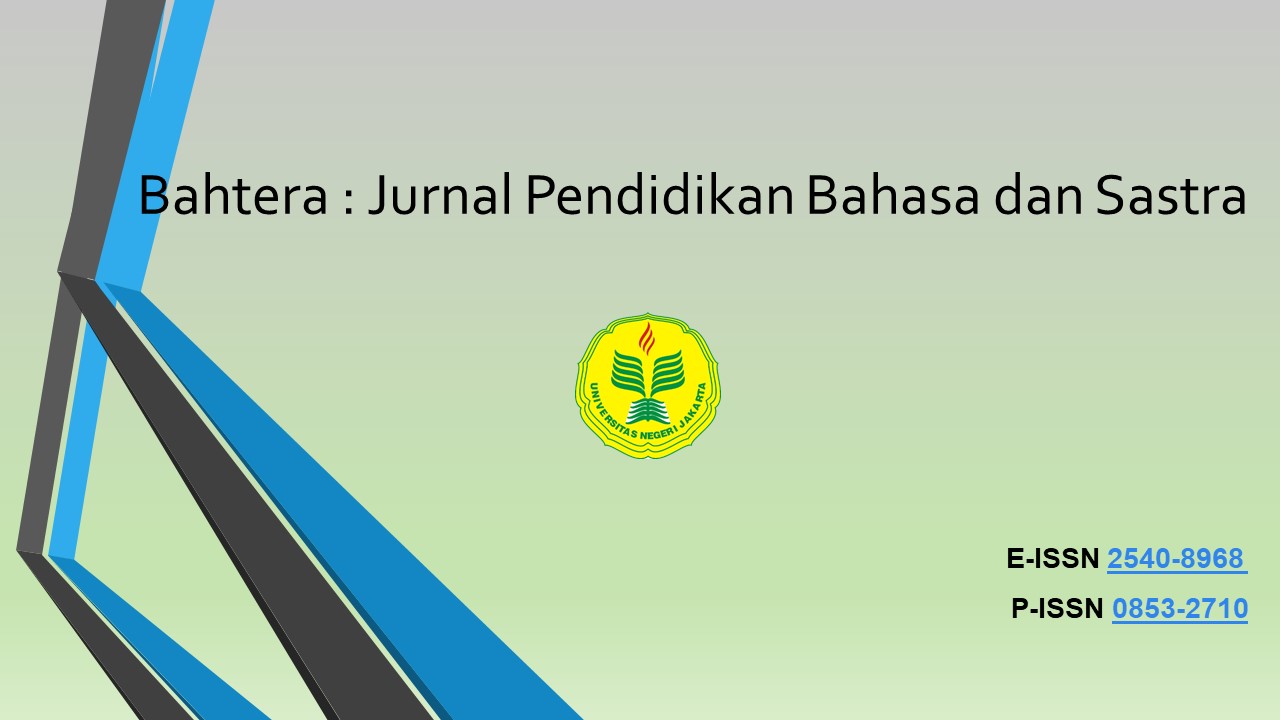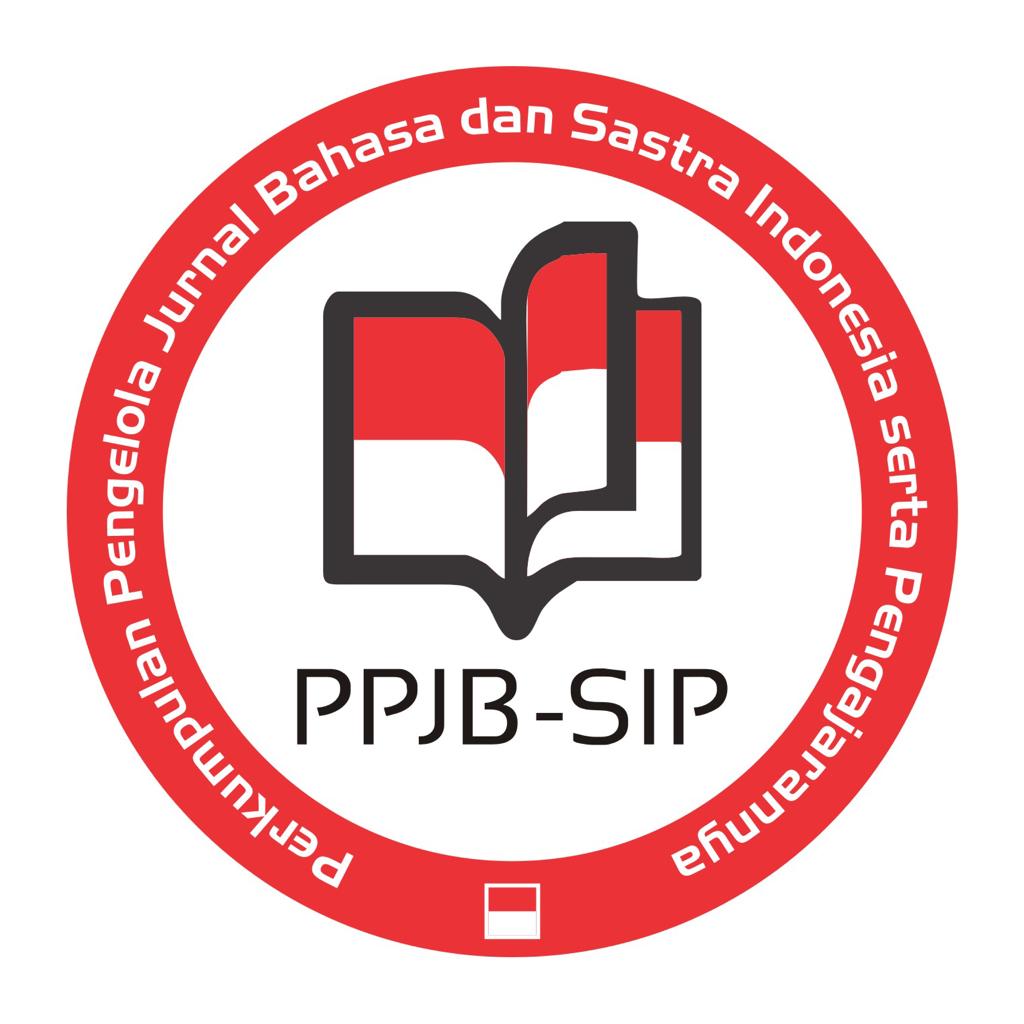IMPROVEMENT OF ELEMENTARY SCHOOL STUDENTS’ COMPETENCE OF READING COMPREHENSION THROUGH GENERATIVE LEARNING MODEL
DOI:
https://doi.org/10.21009/bahtera.191.02Keywords:
generative learning model, reading comprehension, learning process, learning outcomes, students’ responseAbstract
ABSTRACT
Reading comprehension is a competence that everyone has to possess. It can broaden human’s insight in that we will not be left behind as time goes so fast. One of the teachers’ efforts as to enhance the reading comprehension competence is to apply a learning model that is able to explore a lot of students’ potency. The learning model considered to be capable of developing the students’ creative-thinking is a generative model. Based on the result of data analysis, it is known that the process of reading-comprehension learning runs well in full activity of students. The students’ tendency to the learning of reading comprehension using such a model is positive in the means of 75.10%. The generative learning model succeeds in enhancing the students’ competence of reading comprehension. The means of score before the treatment is only 53.80%, whereas after the treatment it gets 72% in which the index gain is 0.41 and it is categorized into mediocre. There is difference of reading-comprehension competence between the use of generative learning model and conventional model. It is proven by t-test, indicating that t-observed is higher than t-table. Therefore, the generative learning model is effective and reasonable to use for the teachers in the improvement of stduents’ reading-comprehension competence.
References
Bond, G.L. et al. (2003). Reading Difficulties. Englewood Cliffs, New Jersey : Prince Hall, Inc.
Damaianti, V. S. (2001). Strategi Volisional Melalui Dramatisasi dalam Bidang Pendidikan Membaca. Ringkasan Disertasi Promosi Doktor UPI Bandung. Bandung: Tidak diterbitkan.
Djuanda, D. (2008). Pembelajaran Keterampilan Berbahasa Indonesia di Sekolah Dasar. Bandung: Pustaka Latifah.
Firdaus. (2007). Pembelajaran Terkini Perpaduan Indonesia Malaysia. Yogyakarta: Pustaka Pelajar.
Harris, TL. & Hodges, E.R. (1981). A Dictionary of Reading and Related Terms. Washington : International Reading Association.
Hatch, E. & Farhady, H. (2002). Research Designs and Statisicts for Applied Linguisticts. New York: McGraw-Hill, inc.
Holil, A. (2008). Pembelajaran Generatif. [Online]. Tersedia: http//anwarholil. blogspot.com. [2 Januari 2012].
Joyce, B. & Weill, M. (2009). Models of Teaching. New Jersey: Pearson Education, Inc.
Meltzer, D.E. (2002). The Relationship between Matematics Preparation and Conceptual Learning Gain in Physics: A Possible “Hidden Variable” in Diagnostics Pretest Scores. American Journal of Physics. [Online]. Tersedia: http://www.physics.iastate.edu/per/docs/AJP-Des-2002-Vo.70-1259-1268.pdf [Agustus 2012].
Nur, M. (2002). Psikologi Pendidikan, Fondasi untuk Pengajaran. Surabaya: PSMS Program Pascasarjana Unesa.
Osborne, R. J., & Wittrock, M.C. (1995). Learning science: A generative approach. Science Education. California: Wiley Periodicals, Inc.
Redway, K. (1998). Rapid Reading. London : Pan Books, Ltd.
Rosyada, D. (2007). Paradigma Pendidikan Demokratis, Sebuah Model Pelibatan Masyarakat dalam Penyelenggaran Pendidikan. Jakarta: Kencana Prenada Media Group.
Soedarso. (2006). Sistem Membaca Cepat dan Efektif. Jakarta : Gramedia.
Sukmara, D. (2007). Implementasi Life Skill dalam KTSP melalui Model Manajemen Potensial Qodrati. Bandung: Mughni Sejahtera.
Syaodih, E. (2007). Pengembangan Model Pembelajaran Kooperatif untuk Meningkatkan Keterampilan Sosial. Ringkasan Disertasi Promosi Doktor UPI Bandung. Bandung: Tidak diterbitkan.
Tampubolon, D.P. (2000). Kemampuan Membaca, Teknik Membaca Efektif dan Efisien. Bandung : Angkasa.
Trianto. (2007). Model-model Pembelajaran Inovatif Berorientasi Konstruktivistik. Jakarta: Prestasi Pustaka Publisher.
Weiner, H.S. (1985). Reading Skill Hand Book. USA : Houghton Mifflin and Co.
Wena, M. (2009). Strategi Pembelajaran Inovatif Konteporer, Suatu Tinjauan Konseptual Operasonal. Jakarta: Bumi aksara.
Asep Saepurokhman is an alumnus of the Post-Doctoral Program (S3) of The post-graduate School of Indonesia University of Education Bandung and a lecturer of LLDIKTI Wilayah IV West Java with the duty at STKIP Sebelas April Sumedang.
Downloads
Published
How to Cite
Issue
Section
License
License & Copyright
This work is licensed under a Creative Commons Attribution 4.0 International License.










